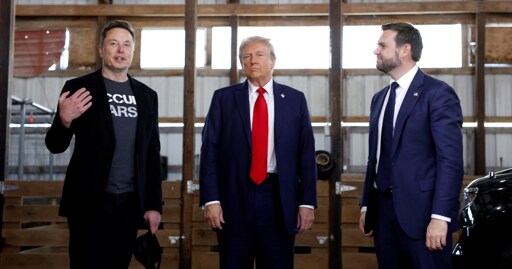Summary
Legal experts warn of a looming constitutional crisis after JD Vance suggested judges lack authority over Trump’s “legitimate power.”
His remarks follow a federal judge’s ruling blocking Trump and Elon Musk’s DOGE from accessing Treasury Department data.
Musk also called for the judge’s impeachment, fueling concerns the administration may ignore court orders.
Scholars argue this undermines judicial authority and could trigger a systemic breakdown, but with Republicans controlling Congress, impeachment as a remedy appears unlikely.



"If a judge tried to tell a general how to conduct a military operation, that would be illegal.” Isn’t this premise just blatantly wrong though? A judge is to uphold the law, and aren’t there laws governing how the military operates that, if violated, could be have legal consequences?
At least, isn’t that how it’s supposed to work?
(Edit: I’m genuinely asking because I’m questioning my understanding of how these things are supposed to be balanced without giving absolute authority, as if in a dictatorship)
Where it actually breaks is unknowable, but the structure is:
Judges determine the interpretation of the law. The executive branch enforces the law.
Both of those branches derive their power from the constitution.
The military protects the constitution against all enemies, foreign and domestic. The President is the Command in Chief of the military, however service members from the Chairman of the Joint Chiefs of Staff to a Private fresh out of boot camp are instilled with the obligation to refuse illegal orders.
If the Supreme Court rules on an issue and the President tries to use the military in contravention of that ruling, the military is supposed to follow the constitution, not the President.
Judges are more for after-the-fact rulings.
Fair point but I think the argument is still that, even after, it is the judges job to say they are operating illegally and must therefore cease such operations and/or take the penalty, no?